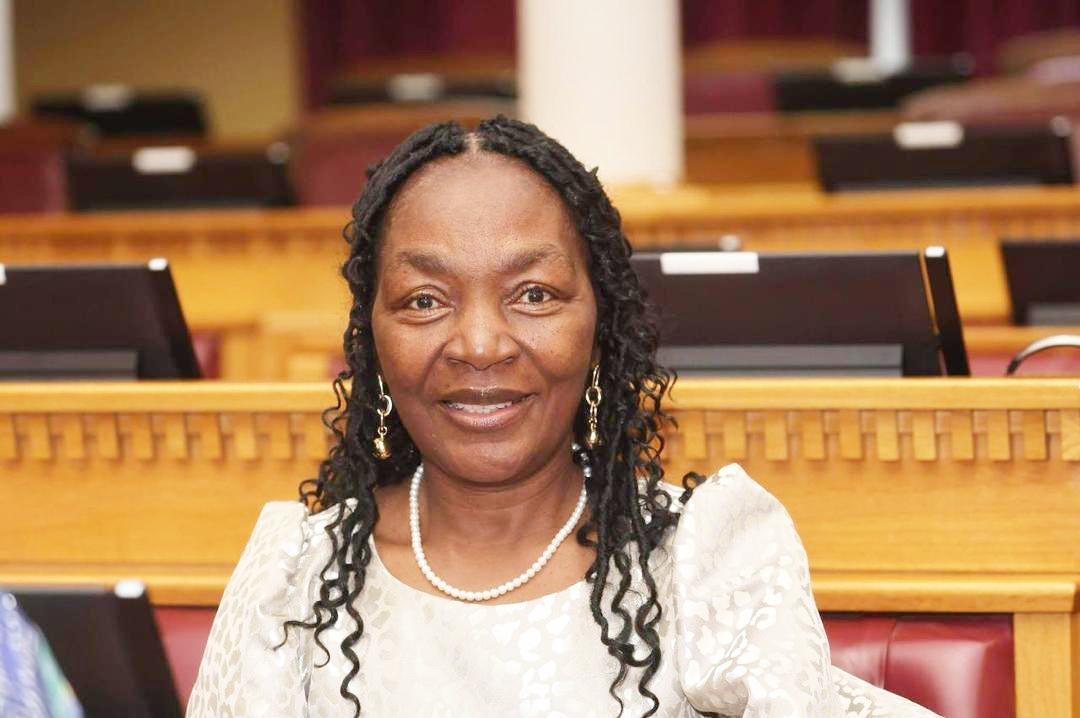Africa-Press – Namibia. Finance minister Erica Shafudah says the government will reduce the non-mining corporate tax rate to enhance the country’s economic competitiveness, attract investments and stimulate growth.
Responding to questions raised in the National Assembly last week during the budget debate, Shafudah acknowledged concern over the decline in Southern African Customs Union (Sacu) revenue for the current year and over the Medium-Term Expenditure Framework (MTEF) period. She, however, maintained that reducing non-mining tax is expected to ultimately boost revenue. She also highlighted the inherent volatility of Sacu revenues, and stressed the need to diversify the country’s revenue sources. “By its nature, taxes on international trade are volatile ,and fluctuate with regional and global market developments.
This is what we are experiencing this year, especially due to weaker trading activities within the customs union,” she said.
Shafudah assured the nation that the government is closely monitoring these developments, and has initiated several tax policy and administrative reforms aimed at broadening the revenue base.
“We introduced new taxes on resident dividends, and implemented a land tax last year.
Furthermore, the ministry has started renegotiating tax treaties with key trading partners to close loopholes that enable tax evasion, as announced in the previous budget,” she said.
She added that the government is implementing measures to ensure it maximises returns from natural resources and ventures into new industries such as green hydrogen, oil and gas.
Responding to concerns about the high share of operational and personnel expenditure relative to development spending, Shafudah maintained that the development budget has been gradually increased.
“In 2023/24, the development budget accounted for 3.1% of GDP, rising to 4.2% in 2024/25, and is projected to reach 4.6% in 2025/26. Over the MTEF, it is expected to average around 4.4% of GDP,” she said.
While affirming the government’s commitment to increasing the development budget, she acknowledged challenges, citing capacity constraints and delays between budgeting and project execution.
Regarding concerns about under-investment in agriculture, Shafudah highlighted that the Ministry of Agriculture, Fisheries, Water and Land Reform is currently implementing 53 capital projects that have contributed positively to economic growth and job-creation. “In 2023/24, the ministry utilised N$865 million, and for 2024/25, it received an allocation of N$1.3 billion.
In the current financial year, the ministry was allocated N$2.6 billion, with N$506 million earmarked specifically for agricultural projects. An additional N$2 billion is planned over the MTEF,” she said.
These funds, she added, support improvements in food systems and initiatives such as the Green Scheme programme, including Phase II of the Neckartal Dam Irrigation Project.
Regarding why there is an increase in debt and interest payments, Shafudah explained that debt accumulation results from persistent budget deficits where expenditures outpace revenues over time.
“The government is employing macroeconomic policies and reforms aimed at stabilising and reducing debt. These include better expenditure management, revenue mobilisation through improved collection and compliance, and growth-enhancing initiatives,” she stated. Government debt as a percentage of GDP is projected to decline from 66% in 2024/25 to 62% in 2025/26, with the downward trend expected to continue. Interest payments are also forecast to fall from 4.1% of GDP in 2024/25 to 3.6% by the end of the MTEF period. Shafudah reminded Parliament that a government debt management strategy is in place to avoid falling into a debt trap.
“Achieving this goal requires fiscal discipline, prudent spending and economic growth,” she said.
For More News And Analysis About Namibia Follow Africa-Press






